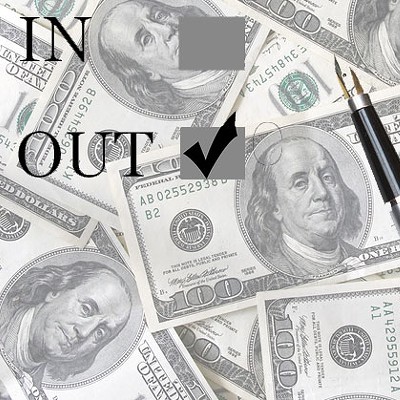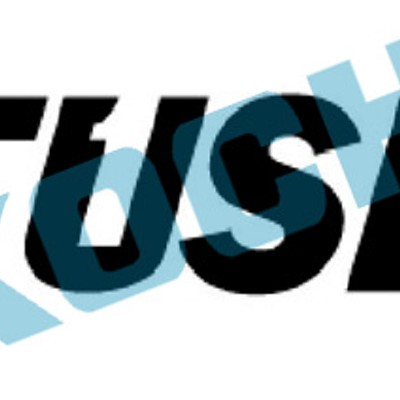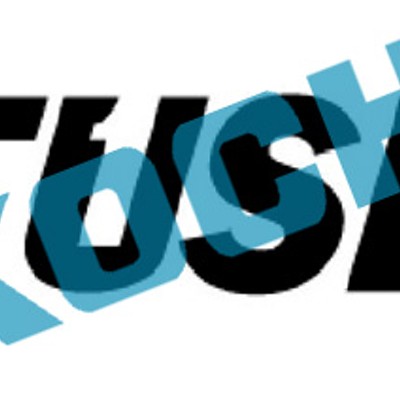Notions of academic independence gained a fresh twist recently, when the new Freedom Center found a home on the UA campus.
The center's website (www.arizonafreedomcenter.org) opens with a two-lane blacktop meandering into the windswept horizon. It's the quintessential icon of American freedom, beckoning us toward distant hills.
But at the end of that road, you won't find Easy Rider. What you will find is money from the Charles G. Koch Charitable Foundation.
Along with his brother David, Charles Koch is part of the billionaire energy-business dynasty that has poured millions of dollars into ultra-conservative causes. Favorite Koch beneficiaries include the Americans for Prosperity Foundation, which is linked to the creation of the Tea Party movement.
Administratively, the UA Freedom Center is tucked within the College of Social and Behavioral Sciences, and soon will enjoy its own digs at the Marshall Building on Park Avenue. The think tank already features an impressive roster of UA faculty members, including at least two endowed Philosophy Department instructors.
It's the brainchild of David Schmidtz, a 15-year Philosophy Department veteran and a star among libertarian intellectuals. According to a Social and Behavioral Sciences publication called SBS Developments, the center grew out of classes Schmidtz has long taught on the "philosophy of freedom."
To critics on the left, however, that terminology has become conservative code for libertarian, anti-regulation ideology.
The center was seeded with donations and pledges of more than $2.5 million from Ken Kendrick and his wife, Randy. Mr. Kendrick was a co-founder of the software company Datatel, and is currently managing general partner of the Arizona Diamondbacks. Schmidtz met the Kendricks when he was being honored with an award from Institute for Humane Studies at George Mason University in Arlington, Va.
As it happens, George Mason is also home to the Mercatus Center, which lists David Schmidtz among its faculty network. The Mercatus Center also boasts Charles Koch as a board member.
In 2010, Jane Mayer of The New Yorker published an exhausting study of the Koch brothers' enormous network of political and academic patronage. That includes more than $30 million donated to George Mason University, with much of it earmarked for the Mercatus Center.
John Aloysius Farrell is a senior reporter with the Center for Public Integrity, a watchdog group based in Washington, D.C. In April, he published a long piece detailing how the Koch brothers use their millions to influence government policy.
"They give a tremendous amount of money to universities," Farrell tells the Tucson Weekly. "A smaller segment of that, they spend on identifiable libertarian institutes or centers on campuses, including the two at George Mason University."
The Mercatus Center bills itself as "the world's premier university source for market-oriented ideas—bridging the gap between academic ideas and real-world problems." But it's viewed far differently by detractors, who describe a think tank dedicated to stripping away government regulation of private industry. It takes particular aim at the Environmental Protection Agency, which has long been a thorn in the side of Koch Industries.
Have those same tendrils now reached the UA?
In an interview with the Weekly, Schmidtz characterizes the Charles G. Koch Charitable Foundation as a minor Freedom Center patron, having pledged a mere $1 million. But among the center's other contributors is a major donor whose identity Schmitz says has been kept secret, even from him.
To learn more about this secret donor—and to find out about any other Koch donations to the school—we contacted Stephanie Balzer, communications director for the UA Foundation.
In an e-mail reply, Balzer sidestepped the question about other Koch donations on campus. She also would not identify the mysterious donor, writing that "we do not disclose any information about anonymous gifts to the University of Arizona Foundation."
Chris Maloney heads the UA Philosophy Department. In the SBS Developments article, he called the new Freedom Center a "defining moment in the history of the department and the philosophical profession." Maloney didn't return a phone call from the Weekly seeking comment.
However, Schmidtz says the Koch brothers' ties to the center are completely transparent. And he insists that they exert no influence over the research conducted there.
Instead, he says the center's agenda is clear-cut. "If we were just putting our philosophical mission into one sentence, it would be to study freedom in all of its conceptions and also all of its forms—political freedom, economic freedom, civil rights and psychological freedom."
The fruits of that mission could be far-reaching. Schmidtz says the center plans to offer a degree program in economic instruction for high school teachers, and to generate texts for K-12 education. "We aim not only to produce the teachers, but the materials that are getting taught."
Some suggest that funding from the Koch brothers rarely comes without ideological strings attached. "They spread their cash around far and wide, targeting it at politicians or political parties or political groups," says Dave Levinthal of the Center for Responsive Politics in Washington, D.C. "It also goes deep into the realms of educational institutions (and) philanthropic institutions—and it's not just to organizations that people would stereotypically define as conservative or liberal."
Brad Friedman runs the website Kochwatch.org. He takes a darker view of the Koch brothers' campus philanthropy. The Kochs "fund these various libertarian-leaning organizations under names like 'Freedom Center' in order to create more phony studies, and more dubious research," he writes in an e-mail to the Weekly.
The goal, he writes, is to obscure the fact that Koch Industries "are sucking off the government teat billions in fossil-fuel subsidies, using the resources that belong to the people, while at the same time killing those people with poisons, rather than clean and renewable sources of energy that, unfortunately for them, happen to fall for free from the sky, and blow through the air."












